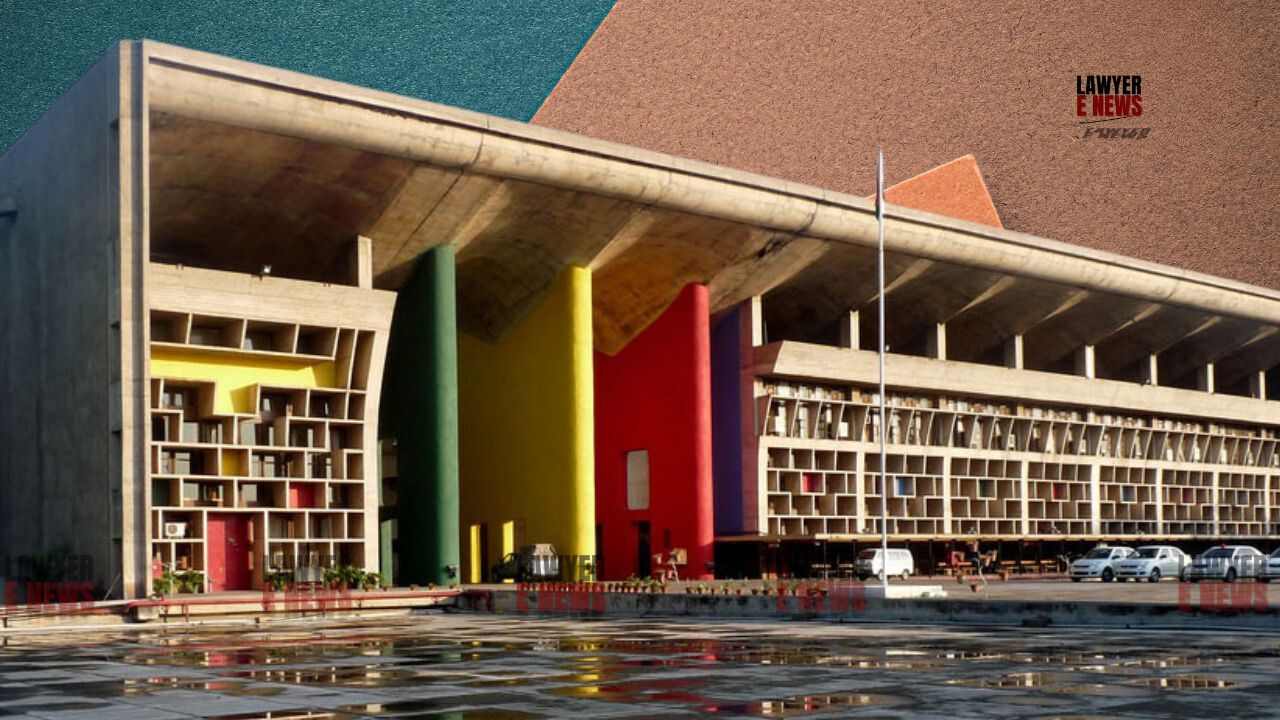-
by Admin
16 February 2026 1:47 PM



Borrowers Must Seek Remedies Under SARFAESI Act, Not Through Writ Petitions - In a significant ruling, the Punjab & Haryana High Court has held that a writ petition under Article 226 is not maintainable against a private bank in matters concerning loan recovery under the SARFAESI Act, 2002. Dismissing a petition filed against ICICI Bank, the court emphasized that private financial institutions do not perform public functions warranting judicial interference through writ jurisdiction.
A division bench comprising Justice Anupinder Singh Grewal and Justice Deepak Manchanda, in its order dated 7th February 2025, ruled in CWP No. 3568 of 2025 (O&M) that a borrower cannot invoke the writ jurisdiction of the High Court to direct a private bank to take possession and auction a mortgaged property. The court categorically stated: "ICICI Bank does not fall under the definition of 'State' under Article 12 of the Constitution. A private financial institution, merely because it is engaged in banking operations, does not become subject to writ jurisdiction. The petitioner has an adequate alternative remedy under the SARFAESI Act and must avail the same."
"SARFAESI Act Provides Complete Remedies; No Writ Jurisdiction Over Private Banks"
The petitioner, Rajvinder Singh Bedi, a borrower, had sought a writ of mandamus directing ICICI Bank to take physical possession of the mortgaged property and auction it, arguing that the delay in enforcement of SARFAESI proceedings was causing financial losses. The court, however, rejected the plea, holding that: "The SARFAESI Act provides a comprehensive statutory mechanism for borrowers to challenge actions of secured creditors. If the petitioner is aggrieved, he must approach the appropriate forum under the Act, not the High Court through a writ petition."
Referring to the Supreme Court’s landmark ruling in Phoenix ARC Pvt. Ltd. v. Vishwa Bharati Vidya Mandir, (2022) 5 SCC 645, the court reiterated: "A private financial institution enforcing security under SARFAESI does not perform a public function expected of State authorities. Borrowers aggrieved by actions under SARFAESI must seek remedies under the Act rather than invoking writ jurisdiction."
"Regulatory Oversight by RBI Does Not Make Private Banks State Entities"
The court further dismissed the argument that ICICI Bank should be treated as a "public authority" due to regulatory control by the RBI. Citing the Supreme Court's decision in Federal Bank Ltd. v. Sagar Thomas, (2003) 10 SCC 733, the court held:
"Merely because a private bank operates under RBI regulations does not mean it is performing sovereign or public functions. Banking remains a commercial activity. Regulatory oversight does not transform a private entity into an instrumentality of the State."
The High Court emphasized that contractual disputes between a borrower and a private bank fall within the domain of civil law, and judicial intervention through a writ petition is unwarranted. The judgment clarified: "This Court cannot direct a private bank on how and when to enforce SARFAESI proceedings. The petitioner has an alternative remedy under the SARFAESI Act and must avail the same."
"No Writ Jurisdiction Over Private Banks: Petition Dismissed With Liberty to Seek Alternative Remedy"
With these observations, the High Court dismissed the writ petition, stating that the borrower must seek recourse through the appropriate statutory forum instead of invoking writ jurisdiction. The judgment reaffirmed that:
"A writ petition cannot be entertained against a private financial institution in matters concerning loan recovery. The petition is dismissed, with liberty to the petitioner to pursue remedies available under the SARFAESI Act."
This ruling reinforces the long-standing legal principle that private banks are not State entities and cannot be subjected to writ jurisdiction unless they discharge public functions. It also underscores the necessity for borrowers to follow the statutory remedies provided under the SARFAESI Act, rather than seeking judicial intervention through writ petitions.
Date of decision: 07/02/2025
